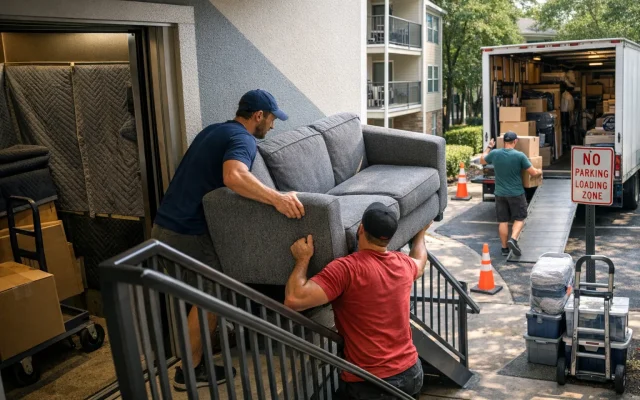Here’s a staggering stat: only about 55% of renters in the U.S. carry renters insurance. Yet, the average policy costs less than a couple of cups of fancy coffee per month—typically $15 to $30. Surprised? You’re not alone. Many renters overlook this affordable renters insurance safeguard, thinking they don’t need it or that their landlord’s policy has them covered. Spoiler alert: it doesn’t. So, is renters insurance required? Let’s unpack this topic and demystify why renters insurance might just be your best financial move.
What Is Renters Insurance?
Renters insurance is a type of coverage designed specifically for tenants. Unlike homeowners insurance, which protects the structure of a rental home or apartment, renters insurance focuses on your personal belongings, liability, and sometimes temporary living expenses.
For instance, if a pipe bursts in your apartment and your furniture gets ruined, renters insurance helps replace those items. If your guest trips over a loose rug and sues you, renters insurance can help cover legal costs. It’s like a safety net for the unexpected.
Get A Coverage Now!
Starting from $5/mo.
What Are the Benefits of Renters Insurance?
The benefits of renters insurance go beyond just protecting your stuff. Here are some key advantages:
- Financial Protection: From replacing stolen electronics to covering damage caused by a kitchen fire, renters insurance ensures you’re not paying out of pocket for unexpected mishaps.
- Liability Coverage: If a guest gets injured in your home or you accidentally damage someone else’s property, liability coverage helps with legal fees and settlements.
- Temporary Housing Costs: If a covered disaster renders your rental uninhabitable, renters insurance can pay for temporary lodging and meal expenses.
- Peace of Mind: Knowing that your belongings and finances are protected allows you to focus on other priorities.
These benefits make renters insurance a smart investment for anyone renting a home or apartment.
Does My Landlord’s Insurance Cover Me?
Nope, not even close. Your landlord’s insurance covers the building—think walls, roof, and structure. But it doesn’t extend to your personal belongings or protect you from liability claims. If your apartment catches fire, your landlord’s policy replaces the walls and floorboards, not your laptop, clothes, or cherished vinyl collection.
How Does Renters Insurance Work?
A renters insurance policy typically includes three main components:
- Personal Property Coverage: Protects your belongings against events like theft, fire, and certain water damages. Did someone swipe your laptop at a coffee shop? You’re likely covered.
- Liability Coverage: Covers legal fees and damages if someone gets hurt in your rental or if you accidentally damage someone else’s property.
- Additional Living Expenses (ALE): Pays for temporary housing and meals if your place becomes uninhabitable due to a covered event.
But here’s the catch: renters insurance doesn’t cover everything. Floods, earthquakes, and pest damage are typically excluded unless you purchase add-ons or riders.
Get A Coverage Now!
Starting from $5/mo.
How Much Coverage Do I Need?
The amount of renters insurance you need depends on the value of your belongings. Start by creating a home inventory—catalog everything you own, from furniture to electronics. Don’t underestimate the cost of replacing everyday items like clothing, dishes, and books. A rough estimate for most renters? Around $20,000 in personal property coverage.
Liability coverage often starts at $100,000, but consider increasing it to $300,000 if you have significant assets. Trust me, a few extra bucks per month is worth the peace of mind.

Do I Need Renters Insurance if I Don’t Own Much?
Absolutely. Even if your furniture came from Craigslist or your wardrobe is minimalist, the cost of replacing essentials adds up fast. Plus, renters insurance isn’t just about your stuff. Liability coverage and ALE make it a no-brainer.
For example, if a kitchen fire damages your unit and the one next door, you could be held liable for thousands of dollars. Renters insurance steps in to cover those expenses.
What About Roommates?
If you live with roommates, they’ll need their own policy. Renters insurance typically only covers the policyholder’s belongings and liability. However, some insurers allow joint policies for roommates, but this can get tricky. Keep things simple: everyone should get their own.
Is Renters Insurance Required/Mandatory by Law?
No, renters insurance isn’t legally required. But—and it’s a big but—your landlord might require it as part of your lease agreement. They’re within their rights to do so, and failing to comply could mean losing your lease. Landlords ask for this because it minimizes their liability and ensures tenants can cover their losses in case of accidents.
Can I Transfer My Renters Insurance to a New Apartment?
Yes, renters insurance is portable. If you move, just update your address with your insurer to ensure your coverage remains active. This is crucial because your premium might change depending on the location—for example, moving to an area with higher crime rates or a greater risk of natural disasters could slightly increase your costs. However, the good news is you won’t need to start a new policy from scratch. Instead, your existing policy will adjust to your new circumstances, often with minimal hassle. Many insurers also offer tools to make this process seamless, such as online portals or mobile apps where you can quickly update your information. Just remember to notify your insurer as soon as possible to avoid any gaps in coverage during your move. A portable policy ensures you’re protected no matter where life takes you.
Can I Cancel My Renters Insurance Anytime?
Yes, but why would you? Unless you’re moving in with someone whose policy covers you, canceling leaves you exposed to financial risks. Think about the unexpected events that renters insurance shields you from—fires, theft, or liability claims can happen at any time. Without coverage, even minor incidents could lead to significant financial strain. Additionally, some insurance providers impose fees if you cancel your policy mid-term. This means canceling your policy could cost you more in the short term while leaving you vulnerable in the long term. If you’re considering canceling, evaluate the risks and discuss alternative options with your insurer. Some providers may offer adjustments to better fit your budget or situation. Ultimately, maintaining renters insurance ensures you’re protected, offering peace of mind and financial security against unforeseen events.
Get A Coverage Now!
Starting from $5/mo.
Actionable Tips for Getting Started
- Shop Around: Compare quotes from at least three providers to ensure you’re getting the best deal. Rates vary significantly based on location, coverage, and provider, so it’s worth investing time in comparison shopping. Don’t settle for the first option—look for a policy that balances cost with comprehensive coverage tailored to your needs.
- Understand Your Policy Limits: Check if there are caps on high-value items like jewelry or electronics. Some policies have low limits for items such as fine art, collectibles, or expensive gadgets. If your possessions exceed these caps, add a rider for extra coverage to ensure adequate protection. Always read the fine print carefully.
- Ask About Discounts: Bundling renters insurance with auto or life insurance can save you money. Many insurers offer discounts for multi-policy holders, allowing you to reduce your overall premium significantly. Additionally, ask about other potential discounts for security features in your home, good credit scores, or even being claim-free. It all adds up!
- Document Your Belongings: Take photos, save receipts, and keep an inventory of everything you own. This simplifies the claims process if disaster strikes and helps prove ownership to your insurer. Make sure your inventory includes details like purchase dates, serial numbers, and estimated values for high-ticket items. Store these records safely, ideally in a cloud-based system or a fireproof box, so they’re accessible when needed. Keeping everything organized ensures you’re fully prepared for any eventuality and can help you recover quickly.
- Review Annually: Life changes fast. Update your policy when you buy new gadgets, furniture, or make other significant purchases. Regular reviews ensure that your coverage limits match the current value of your belongings. It’s also a good time to check for discounts or better rates from your insurer, keeping your policy optimized.
The Bottom Line
Renters insurance is not a legal mandate/required, but it’s a financial lifeline. For a small monthly cost, it protects your belongings, shields you from liability, and covers unexpected living expenses. Imagine a fire, theft, or natural disaster—these events can wipe out everything you own. Renters insurance steps in to help you rebuild your life without significant financial strain. Liability coverage ensures that even in tricky situations, like someone getting injured in your rental, you’re not left handling expensive legal fees alone. The added bonus? Many policies include additional living expenses, covering the cost of temporary housing if your rental becomes uninhabitable. Whether it is required by your landlord or just a smart choice, renters insurance is one of the easiest and most effective ways to safeguard your future and provide peace of mind in uncertain times. It’s a small price to pay for robust protection against life’s curveballs.
So, what are you waiting for? Make the call, get the coverage, and rest easy knowing you’re prepared for life’s curveballs.







